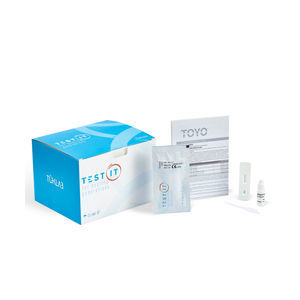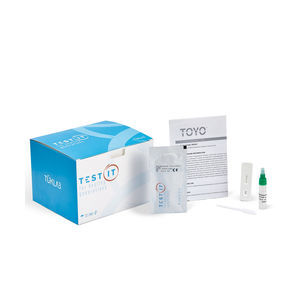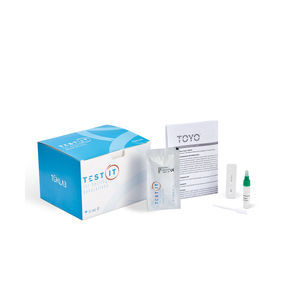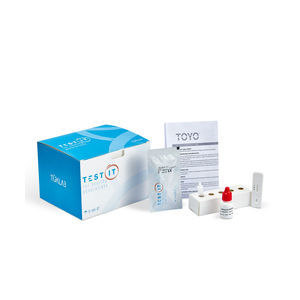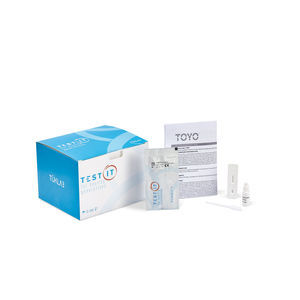
- Laboratory
- Laboratory medicine
- Hepatitis C test kit
- Turklab Tibbi Malzemeler San. Tic. A.S.
Hepatitis C assay kit for antibodiesserumplasma
Add to favorites
Compare this product
Characteristics
- Applications
- hepatitis C
- Tested parameter
- for antibodies
- Sample type
- serum, plasma, whole blood
- Analysis mode
- immunochromatographic
- Format
- cassette
- Result display time
15 min
- Specificity
100 %
- Sensitivity
100 %
Description
Hepatitis C is a liver infection caused by the Hepatitis C vi- rus, a single-stranded, enveloped RNA virus.
The severity of Hepatitis C disease ranges from an acute, short-term, mild illness to chronic, lifelong disease. Chronic Hepatitis C, seen by most people infected with HCV, may cause serious life-threatening illnesses like liver cancer and cirrhosis. The current treatments can cure most people in the early period of hepatitis C disease.
Early diagnosis of hepatitis C virus (HCV) infection is crucial to prevent further transmission in high-risk groups.
Hepatitis C disease is a worldwide disease that occurs in all WHO regions. The most affected regions with a high num- ber of chronic infection cases are Eastern Mediterranean Region, European Region, South-East Asia, and Western Pacific Region.
Seven HCV genotypes and more than 60 subtypes have been identified globally. Genotypes 1, 2, and 3 are the most common, accounting for about 60% of global infections.
INTENDED USE
Turklab’s Anti-HCV Test is a rapid, immunochromatographic assay for the qualitative detection of antibodies generated against proteins that are encoded by conserved sequences of HCV genome in human serum, plasma, and whole blood samples.
• Detects antibodies generated against the proteins encod- ed by all HCV genotypes’; most conserved parts of Core, NS3, NS4, and NS5 regions in the HCV genome.
Catalogs
No catalogs are available for this product.
See all of Turklab Tibbi Malzemeler San. Tic. A.S.‘s catalogsOther Turklab Tibbi Malzemeler San. Tic. A.S. products
INFECTIOUS DISEASE TESTS
Related Searches
- Assay kit
- Solution reagent kit
- Blood assay kit
- Serum assay kit
- Immunoassay assay kit
- Plasma assay kit
- Infectious disease detection kit
- Whole blood detection kit
- Respiratory infection test kit
- Cassette assay kit
- Lateral flow test kit
- COVID-19 assay kit
- Antigen assay kit
- IgG test kit
- Oncology test kit
- Urine assay kit
- Nasopharyngeal assay kit
- Antibody assay kit
- Feces test kit
- Hormone test kit
*Prices are pre-tax. They exclude delivery charges and customs duties and do not include additional charges for installation or activation options. Prices are indicative only and may vary by country, with changes to the cost of raw materials and exchange rates.



